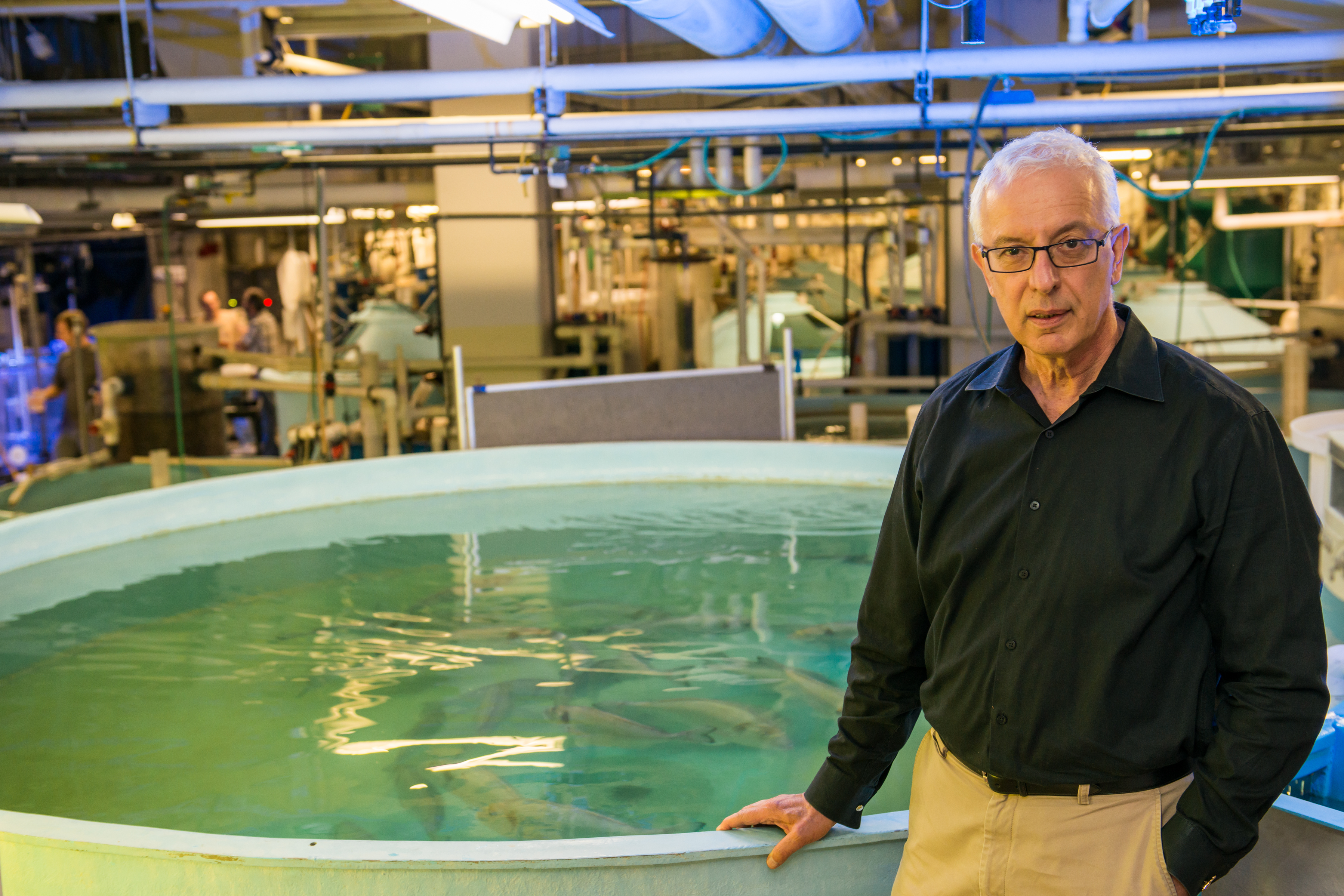Maryland Sea Grant, UMBC win a $1.2 million national aquaculture grant
CONTACT: Rona Kobell, 443-858-6800
COLLEGE PARK and BALTIMORE, Md. – Maryland Sea Grant and University of Maryland, Baltimore County, are lead partners in a multi-state consortium to receive a $1.2 million grant to study how to grow Atlantic salmon in land-based aquaculture systems.
The competitive grant comes from the National Sea Grant Office, part of the National Oceanic and Atmospheric Administration. It is one facet of a major agency effort to increase domestic aquaculture production and reduce the trade deficit associated with salmon imports. According to the agency, about 90 percent of all seafood consumed in the United States is imported. Only about half of the seafood consumed in the United States comes from aquaculture, which puts pressure on wild stocks. Those imports add to a growing seafood trade deficit, already at $16 billion in 2017.
The funding will establish a coordinated network of recirculating aquaculture systems focused on raising Atlantic salmon in land-based systems that re-use the water to grow fish. That effort allows for fish production in more affordable areas closer to population centers, which will in time lower the cost of seafood production as well as the carbon footprint of transporting it. These systems recycle the same water and treat the waste with beneficial microbes, and convert organic waste to energy, resulting in zero-waste discharge. They offer an opportunity to make land-based aquaculture a sustainable practice that eliminates the waste problems.
Americans consume 500,000 tons of Atlantic salmon annually, 95 percent of which is imported, and worth a value of $3.4 billion, according to Yonathan Zohar, the chair of the UMBC Department of Marine Biotechnology and the grant’s lead principal investigator. Zohar, who is based at the Institute of Marine and Environmental Technology in Baltimore, oversees one of the nation’s most sophisticated aquaculture research operations. The new grant, he said, “offers an opportunity for domestic production of Atlantic salmon to replace all of these imports. The only way to really scale that up is with land-based systems that are environmentally sustainable. This allows us to identify the bottlenecks, address the issues and develop a strategic plan to make sure this emerging Atlantic salmon aquaculture industry in the US can be successful.”
Maryland Sea Grant Director Fredrika Moser said she saw tremendous value in a multi-disciplinary approach to growing domestic aquaculture through this grant.
“Sea Grant is excited to work with our partners in research and industry to develop a roadmap that will help policymakers and federal agencies promote an economically feasible and environmentally sustainable land-based domestic aquaculture industry,” she said.
This effort to build these systems’ capacity and research their economic feasibility includes Sea Grant partners in Maine and Wisconsin as well as the University of Maryland Center for Environmental Science, Morgan State University, the USDA National Cold Water Marine Aquaculture Center, and the Conservation Fund’s Freshwater Institute in West Virginia. Industry partners include Superior Fresh in Wisconsin and Whole Oceans, LLC, and Nordic Aquafarms in Maine, among others.
“This research is critical in terms of promoting industry development in the United States. It’s still a very young industry here. There’s a tremendous development potential as we see it,” said Nordic Aquafarms president Erik Heim. “There’s a learning curve in this industry. This kind of research can disseminate knowledge and lower the entry barriers for new players as well as help established players grow.”
Whole Oceans outreach and development associate Jennifer Fortier added: “We want to develop training programs that can help us recruit local workers and retrain skilled laborers from other industries. We look forward to collaborating with the other top-notch partners and learning from each other as we work to expand this industry.”
Check out the news coverage:
